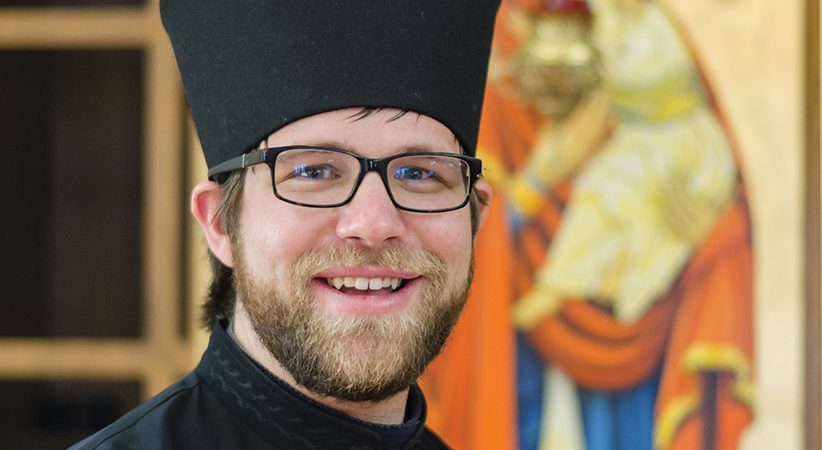Walking Wounded
We can’t deny or minimize how badly men have been hurt by our toxic culture
Deacon Robert T. Yerhot Comments Off on Walking Wounded
 As a spiritual director for clergy and men in formation, I find a question invariably arises as I accompany them to a greater depth of self-awareness and interiority: “What is impeding my progress, Deacon?” While part of the answer to that question is specific to each individual, I find there is common ground into which every impediment is rooted. I have come to understand that ground as unacknowledged, unhealed wounds.
As a spiritual director for clergy and men in formation, I find a question invariably arises as I accompany them to a greater depth of self-awareness and interiority: “What is impeding my progress, Deacon?” While part of the answer to that question is specific to each individual, I find there is common ground into which every impediment is rooted. I have come to understand that ground as unacknowledged, unhealed wounds.
With rare exception, the American men entering our diaconate programs and seminaries, or serving as deacons and priests, are impeded by virtue struggles, patterns of sin, distracted or disintegrated interior lives and inhibited intimacy with God and others. And the soil in which every pattern of sin, virtue struggle or intimacy avoidance is rooted is an unhealed spiritual, relational or emotional wound inhibiting depth in the interior life and fruitfulness in active ministry.
As it would seem these wounds are not fully identified and healed in most pre- and post-ordination formation programs today, I believe these programs could obtain a greater level of awareness regarding both the depth of men’s wounds and available paths to healing, and offer a better response. This would benefit the individual and the Church.
One difficulty I experience in communicating this is a persistent denial of the nature and deleterious effects of contemporary American culture on men. Simply put, our culture is toxic to spiritual depth and affective maturity. Yet clergy and men in formation often have difficulty acknowledging the facts and consequences of their wounds, either denying them outright (“I am not affected by cultural sin”) or minimizing them (“My wounds are not that bad”). Denial and minimization are significant barriers to the deep healing needed if fruitful ministry is to be expected. They are open doors through which Satan enters men’s lives.
A second difficulty is hesitancy on the part of many to explore this area. Doing so requires competency in the behavioral sciences, and the language and conceptual framework of psychology, clinical social work and family therapy are often held suspect by men steeped in theology and spirituality. Some formators will explicitly say, and others will imply, that psychology is fine and good, but spiritual and moral theology more deeply penetrate a man’s inner core, and are thus of greater importance. I always find that attitude interesting because one of the greatest spiritual writers in Church history, St. Ignatius of Loyola, was, in my view, a great psychologist! Indeed, a sound theological understanding of the human person can better inform the behavioral sciences, which in turn must better inform the theology. A more robust and comprehensive exchange between both is needed. I think Pope St. John Paul II, in his encyclical Fides et Ratio (“Faith and Reason”), would agree.
What Is the Path to Healing?
What is the path to healing? An exhaustive answer cannot be given in this column, but I would suggest six steps you can utilize today to more fully develop with your spiritual director over time.
- Be humble and beg for the grace to accept that you are wounded.
- Your wounds do not define you; God does. So ask yourself, “To what image of God am I attached?”
- Beg for the grace to know the roots of your suffering, the patterns of sin in your life, when they began, your fears in regard to them, the secrets you have kept, and the lies you have accepted because of your wounds.
- Share this wound inventory with God and your spiritual director.
- Beg for the grace of healing and the courage to live in freedom.
- Each day beg for the grace of a life of freedom in the Lord, and remain in spiritual direction as you more fully enter into an in-depth relationship with God.
God bless and keep each of you!
DEACON ROBERT T. YERHOT, MSW, is the assistant director emeritus of the diaconate for the Diocese of Winona-Rochester, in Minnesota. He is a core-group member of the Institute for Diaconal Renewal in Steubenville, Ohio. A spiritual director, he has published articles on diaconal spirituality.



